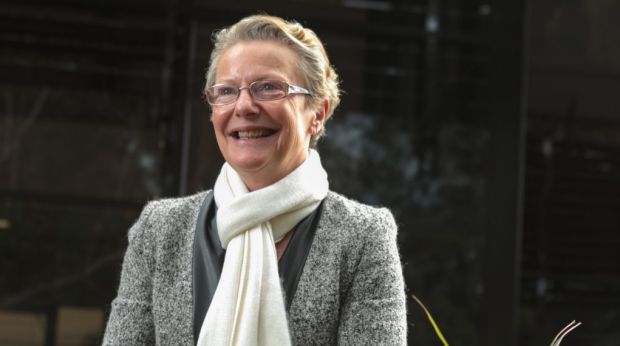
Debra Hocking from the University of Wollongong. Photo: Adam McLean
A visiting trauma expert’s alarm at drug and domestic abuse in indigenous areas has led to the creation of a training program to be offered at the University of Wollongong in conjunction with Harvard Medical School.
The program recognises the role trauma plays among indigenous Australians and was developed as part of an official partnership with Massachusetts General Hospital, a teaching hospital of Harvard.
Aboriginal health specialist Debra Hocking, who will run and co-ordinate the program, said it will aim to give participants better ability to treat individuals and whole communities through recognising the hurt caused to indigenous Australians.
While acknowledging that attitudes had improved in the past 20 years, she said the course will tackle the problem’s core, rather than offering more short-term solutions like prescribing anti-depressants.
“It’s the old c-word,” she said. “I hate to say it but it’s gone on since the beginning of colonisation and it’s compound trauma: loss of land, loss of identity, being taken from your family, and the list goes on.
“Things like family violence, child abuse, are now being documented as symptoms of trauma. The government goes on about closing the gap, well you will never close the gap until you start addressing these things,” she said.
Australian Bureau of Statistics figures from the 2008 National Aboriginal and Torres Strait Islander Social Survey found that 32 per cent of participants reported either a high or very high level of psychological distress, well above average rates for non-indigenous Australians.
The curriculum, which Ms Hocking developed with indigenous experts last week, will cover theory surrounding generational trauma and peer learning based on case studies. The course is the first of its kind in Australia.
“The course is designed to provide trauma informed skills for professionals working within the health, social services, education and justice sectors including Aboriginal and Torres Strait Islander professionals,” said Ms Hocking, who has more than 20 years experience working in Indigenous trauma and previously headed up the Stolen Generations alliance.
She was approached by Richard Mollica, head of psychiatry at the school of medicine at Harvard University to create the program. Dr Mollica reached out to 31 universities across Australia before contacting the University of Wollongong.
Ms Hocking said that Dr Mollica, a leading international expert in trauma, was motivated to create a special program after becoming aware of the rates of drug and domestic abuse when visiting indigenous areas.
“He went to Australia and visited some of the Aboriginal communities under invite, and what he saw absolutely alarmed him,” said Ms Hocking.
The program will be offered as a six-month online course, or a two-week intensive residential program with 60 places, starting July 5. Course participants will receive co-certification from Harvard University and the University of Wollongong.
Ms Hocking said program enquires had been huge, with mental health workers from Papua New Guinea planning to travel to Australia to complete the course.
“The interest has just been amazing. It’s not only [coming from] Australia but Papua New Guinea, Timor-Leste,” she said.
The course will be offered this year as a stand alone program before it becomes part of the Master of Indigenous Health degree next year.
